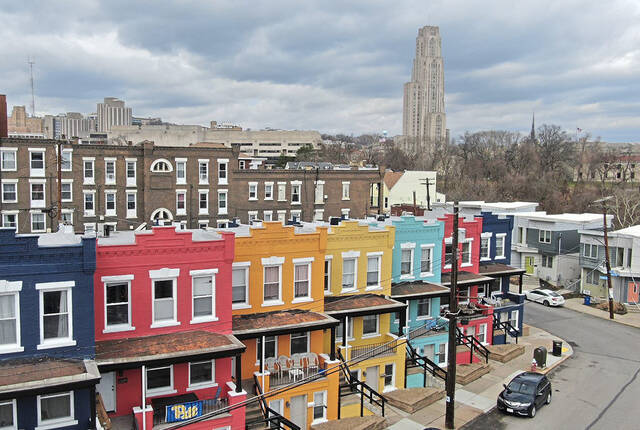A long-debated zoning package for Pittsburgh’s Oakland neighborhood gained final approval Tuesday.
City Council postponed a vote on the zoning package in December after a lengthy public hearing where residents, developers and other Oakland stakeholders voiced an array of concerns.
The zoning legislation will create three new base zoning districts for portions of Oakland.
The Urban Center-Employment district will allow for a range of commercial uses and multi-unit residential housing, but only if all housing units are affordable for lower-income residents and housing doesn’t exceed more than half of a property’s gross square footage.
The proposed Urban Center-Mixed Use district will allow for a range of commercial and residential uses, while the Residential-Mixed Use area would allow some smaller-scale commercial uses in addition to housing.
The zoning package also expands inclusionary zoning into Oakland, meaning developers with 20 or more housing units will need to designate at least 10% of them as affordable housing. Inclusionary zoning already has been approved for the city’s Lawrenceville, Bloomfield and Polish Hill neighborhoods.
The zoning legislation has seen several minor amendments as local leaders have attempted to strike compromises between competing interests in Oakland. Developers have repeatedly advocated for allowing larger building sizes, while many residents have said they’d like to see buildings even smaller. Others have voiced concerns about limits on building additional educational spaces in a neighborhood known for its universities, while others have said they are worried about parking requirements.
City Council in December amended the zoning bill to allow new buildings to stretch up to 300 feet in length. Initially, buildings in the Urban Center-Mixed Use areas would have been capped at 400 feet, though that number was later changed to 250 feet. An exception is in place for grocery stores, which can span up to 425 feet.
Council also tweaked the measure to cap the allowable building height in the Urban Center-Employment district along the Boulevard of the Allies at 185 feet.
Related:
• Final vote on controversial Oakland zoning package expected next week
• Debate persists over proposed zoning changes for Oakland neighborhood
• Pittsburgh Planning Commission adopts Oakland Plan as concerns persist about proposed zoning changes
Georgia Petropoulos, CEO of the Oakland Business Improvement District, said she believes local leaders struck compromises “in a very fair manner.”
“Everyone was well-represented and everyone’s voice was heard,” she said, acknowledging that not everyone got everything they wanted. “All stakeholders are part of the community. That includes the universities and hospitals, people who work at the universities and hospitals, people who live in Oakland, who study in Oakland.”
Petropoulos said the Oakland Business Improvement District generally supports the zoning bill, but the organization would like to see higher building heights allowed to increase density.
Petropoulos said creating a community plan and new zoning districts for Oakland was particularly challenging, given that Oakland serves as a residential community, an innovation district and a secondary downtown area for Pittsburgh. There are many competing interests, she said.
“That’s not an easy compromise, no matter what, for any leaders right now to be making,” she said. “You have to look out for a bigger picture and a greater good.”
Some residents remain displeased.
Elaina Zaitsoff, vice president of Oakcliffe Community Organization, said she feels “this bill does not represent a balance.”
She argued that developers “will be able to buy more height, build longer buildings, build them closer to houses” and build for more uses while residents “lose residential compatibility” and haven’t seen their requests met.
She said she felt the scenario was “gain, gain, gain, gain on one side and lose, lose, lose, lose on the other.”








